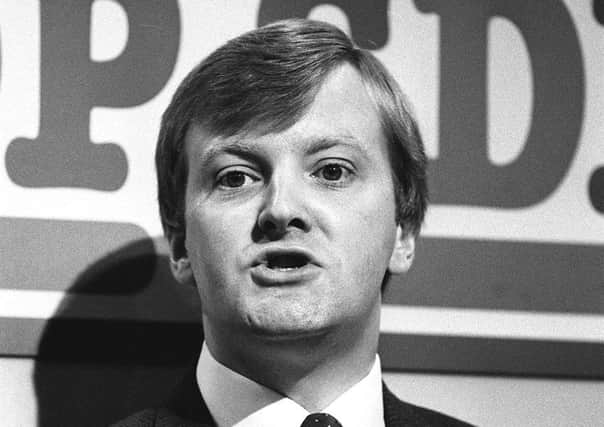Leaders: No platitudes just genuine praise for Kennedy


The death of Mr Kennedy is a very real loss to British politics. It is sad to have to reflect on the sudden end of a political career which offered so much promise when he was first elected 32 years ago, and went on to fulfil that potential by becoming leader of the Liberal Democrats and guiding the party to its biggest number of seats since 1923. It is often forgotten that, under Mr Kennedy, the Lib Dems fared better in 2005 than they did under Nick Clegg five years later. But at the time, this was deemed not good enough – hindsight is a wonderful thing – and attacks on Mr Kennedy’s leadership were accompanied by a growing awareness and alarm over his battle with alcohol. Sadly, this struggle made him vulnerable at a time when strength was required, and his resignation became inevitable.
For those who witnessed the emerging talent of the 23-year-old Mr Kennedy as he first made his mark at Westminster, it is hard to accept that this political career has come and gone, when it still had so much to offer. In recent weeks, following the loss of his seat at Westminster, there was the suggestion of standing at next year’s Scottish elections, and what a welcome addition to the Holyrood ranks Mr Kennedy would have been.
Advertisement
Hide AdAdvertisement
Hide AdBut friends had held serious concerns about Mr Kennedy’s well-being following the loss of the only job he had known for the last 32 years. Loss had figured heavily in his life in recent years: the break-up of his marriage in 2010, and the deaths of his parents, including his father passing away during this year’s general election campaign. It would be a stressful enough situation for anyone, and must have been compounded by his battle with drink.
His appeal transcended politics, partly because he was likeable and witty, and partly because we could identify with the challenges he faced. There was sympathy, but also respect for a principled politician who stood his ground to oppose Britain’s involvement in Iraq, and played no part in coalition government after warning his party against that temptation.
When he conceded defeat last month in the Ross, Skye and Lochaber seat he had held for so long, Mr Kennedy gave one of the most memorable speeches of the night as he acknowledged the shifting landscape, inviting us, in the years to come, “to perhaps tell our grandchildren that we were there on the night of the long skean dhus”.
There is a painful poignancy to those words now. We have lost, far too soon, a decent and honourable man, and one of the finest politicians in a generation.
Blatter bows to the inevitable – finally
After last week’s revelations, it was only a matter of time before Sepp Blatter, the head of football’s world governing body Fifa, was either removed or resigned his untenable position.
If allegations are proved to be true, Mr Blatter had – at the very least – been in charge when corruption had been commonplace around him and across the organisation he controlled.
He remained defiant, but the bad news was only going to get worse as investigations continued. Yesterday’s news that Mr Blatter’s deputy, Jerome Valcke, is alleged to have made key payments in a bribery scandal was probably what put Mr Blatter, finally, over the edge.
We should not be surprised that Mr Blatter could not depart without telling Fifa how to get its house in order – just like last week, when he said he would fix the problems that had attracted dawn raids by the FBI.
Advertisement
Hide AdAdvertisement
Hide AdAccording to Mr Blatter last night, Fifa needs to reduce the size of its executive committee, members should be elected through the Fifa congress, their integrity checks should be organised by Fifa and not by confederations, and they should be given limited terms in office. All in the name of democracy and transparency, no doubt.
And this organisation in need of immediate reform, remember, is the one that Mr Blatter has headed since 1998.
The remaining Fifa members should accept Mr Blatter’s resignation and rip up his reform proposals. There is no guarantee Fifa will survive, even now, because the full extent of the damage has yet to be revealed.
Fifa’s national associations face a huge task to “fix” a body that needs a root and branch review, and radical restructuring. Mr Blatter should have no part or influence in this process.